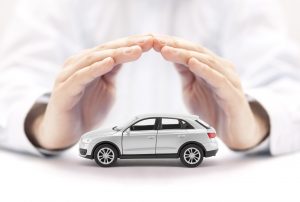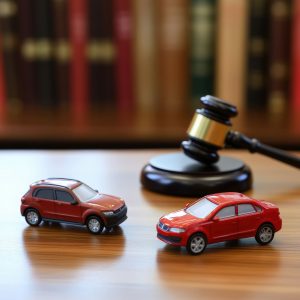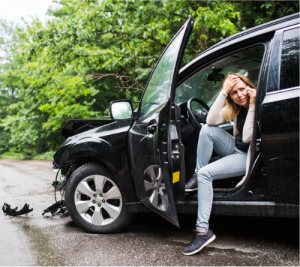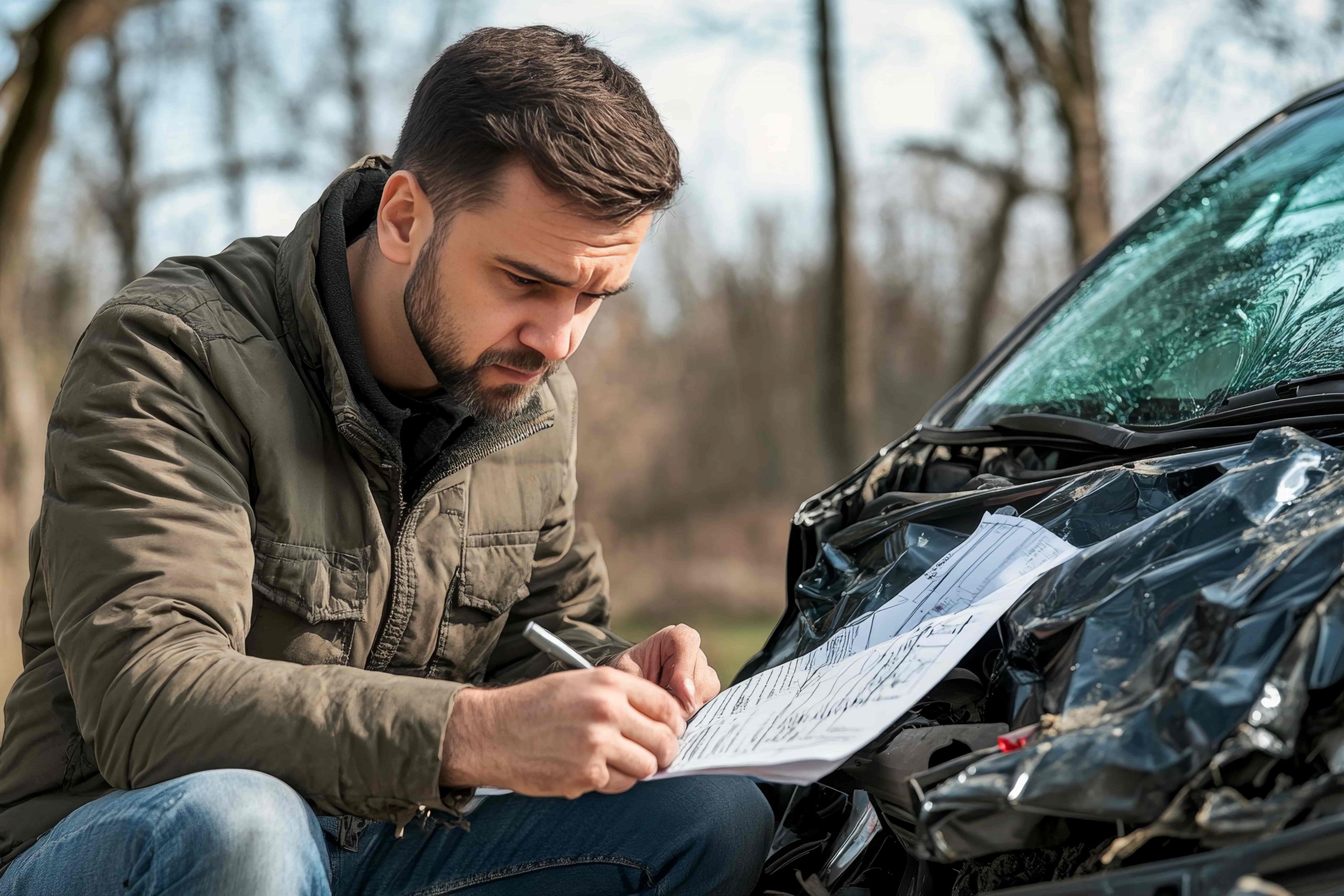Florida’s auto insurance system operates under a no-fault rule, meaning drivers must first turn to their own Personal Injury Protection (PIP) coverage to cover medical expenses and lost wages. However, when an accident results in serious injuries, damages often surpass insurance policy limits – leaving victims uncertain about their next steps.
This is where things get complicated.
What happens when the at-fault driver’s insurance isn’t enough? Can you still get the compensation you deserve? The answer depends on several factors, including the type of insurance coverage involved, the at-fault driver’s financial status, and whether you’re willing to negotiate a settlement, file an uninsured motorist claim, or pursue a lawsuit.
What You’ll Learn in This Article
This guide will break down the options available when a car accident claim exceeds policy limits in Florida. We’ll cover:
- Florida’s No-Fault Insurance System: How it works and its limitations.
- Options When Insurance Limits Are Reached: Including settlement negotiations, uninsured motorist claims, and lawsuits.
- When to Consider Legal Action: Signs that hiring an attorney may be necessary.
- Additional Responsible Parties: Exploring liability beyond the at-fault driver.
If you’ve been in an accident and your damages exceed the other driver’s coverage, remember these options. Time is not on your side – taking action now can be the key to maximizing your settlement.
How Florida’s Insurance System Works?

Florida’s No-Fault Rule: How PIP Coverage Works and Its Limitations
Florida operates under a no-fault car insurance system, meaning that after an accident, each driver must first turn to their own insurance – specifically, their Personal Injury Protection (PIP) coverage – to cover medical expenses and lost wages. This system is designed to provide quick payouts without determining fault, but it comes with strict limitations that often leave victims short on compensation.
Here’s what PIP covers in Florida:
✅ 80% of medical expenses related to the accident (up to policy limits).
✅ 60% of lost wages if the injured party cannot work.
✅ $5,000 in death benefits for fatal accidents.
However, PIP coverage is capped at $10,000 in most cases, which is often not enough for victims with severe injuries, surgeries, or long-term rehabilitation needs. This is where policy limits and additional coverage options become critical.
Related article: What Is PIP And PDL Insurance in Florida?
Why Policy Limits Matter in a Car Accident Case
Every insurance policy has a policy limit, which is the maximum amount the insurance company will pay for a covered accident. Florida law only requires:
- $10,000 in PIP coverage (for medical bills and lost wages).
- $10,000 in Property Damage Liability (PDL) (to cover damage to other vehicles or property).
- No mandatory bodily injury liability (BIL) coverage—meaning many drivers may not have insurance to cover injuries they cause.
This means that if the at-fault driver only has the state minimum coverage, their insurance may only pay $10,000 toward your medical expenses—even if your bills are much higher. If the accident results in serious injuries or extensive property damage, the at-fault driver’s insurance may not be enough to cover all costs.
How to Find Out the At-Fault Driver’s Insurance Limits

Knowing the at-fault driver’s policy limits is critical for negotiating a fair settlement. Here’s how you can find out:
- Ask the Driver Directly – When exchanging insurance information at the scene, check if the policy card includes coverage amounts.
- Contact Your Insurance Provider – If you file a claim, your insurer may request the at-fault driver’s coverage details.
- Send a Demand Letter – A formal request to the at-fault driver’s insurance company may result in disclosure of policy limits.
- File a Lawsuit – If necessary, filing a lawsuit can force the insurer to reveal coverage details during the legal process.
The Bottom Line
Florida’s insurance system often leaves accident victims without full compensation—especially if the at-fault driver has minimal coverage. Waiting too long to act could limit your ability to recover damages. If your medical bills and damages exceed policy limits, you need to explore your options fast.
🚨Every moment counts—waiting too long could mean missing out on the compensation you need. Florida law allows you to sue for damages beyond insurance limits, but only within a strict timeframe. Delays can cost you your right to compensation.
If you’re unsure about what to do next, check out this guide on choosing a car accident attorney.
📞 Need legal guidance now? Contact Applebaum Accident Group—we’ll connect you with trusted attorneys who can evaluate your case and fight for maximum compensation.
Options When Claims Exceed Insurance Limits
When a car accident claim exceeds the at-fault driver’s insurance limits, victims must explore other legal and financial options to recover damages. Depending on the situation, you may be able to:
- Negotiate a settlement within policy limits
- File an uninsured/underinsured motorist (UM/UIM) claim
- Sue the at-fault driver and pursue their assets
Each option has its challenges, but waiting too long to act can cost you compensation. The insurance companies won’t wait—neither should you.
Settlement Negotiations: Can You Settle Within Policy Limits?
One of the first steps after an accident is negotiating a settlement with the at-fault driver’s insurance company. If the insurer agrees to pay the full policy limit, they will typically require you to sign a release of liability, preventing you from pursuing further compensation.
However, insurance companies use delay tactics to pressure victims into unfair settlements. They might:
- Offer lowball settlements to make you accept less than you deserve.
- Hide policy limits to make you believe there’s less coverage available.
- Deny or delay claims in hopes that victims give up or miss legal deadlines.
💡 Tactic to Force Disclosure of Policy Limits: If the insurer won’t tell you how much coverage exists, you can:
- Send a demand letter requesting a policy limit payout.
- File a lawsuit, which requires them to disclose policy limits during discovery.
Uninsured/Underinsured Motorist (UM/UIM) Claims: Your Best Backup Plan
If the at-fault driver has minimal or no bodily injury liability coverage, your best option may be to file an Uninsured/Underinsured Motorist (UM/UIM) claim with your own insurance company.
When Can You Use UM/UIM Coverage?
- The at-fault driver has no insurance (uninsured motorist claim).
- The at-fault driver has insurance, but it’s not enough (underinsured motorist claim).
How does this work? If your damages total $50,000 but the at-fault driver’s insurance only covers $10,000, your UM/UIM policy can cover the remaining $40,000—up to your policy limits.
Beware of your own insurance company’s tactics. Insurers may try to:
- Undervalue your claim to avoid large payouts.
- Argue pre-existing conditions to reduce what they owe you.
- Delay processing your claim, hoping you’ll accept less.
Filing a Lawsuit: When & Why to Sue the At-Fault Driver

If settlements and insurance claims aren’t enough, you may have to sue the at-fault driver to recover additional damages. However, lawsuits are complex and time-consuming, and not all at-fault drivers have assets worth pursuing.
Before filing a lawsuit, ask:
✔️ Does the at-fault driver have assets? (Home, savings, investments, or income that could be garnished)
✔️ Can they declare bankruptcy? (Some debts can be wiped out, making collection difficult)
✔️ Will filing pressure the insurer into a higher settlement? (Some lawsuits are used as negotiation tactics)
How Florida Law Protects At-Fault Drivers’ Assets
Florida has strong asset protection laws that make it difficult to collect from an at-fault driver. However, there are exceptions:
- If the at-fault driver acted recklessly or in bad faith, they could be personally liable.
- A court judgment may allow wage garnishment or liens on non-exempt assets.
- If multiple parties are responsible, you may be able to sue third parties (e.g., vehicle owners, employers, bars serving intoxicated drivers).
🚨 Time is running out! Florida law has a strict deadline for filing lawsuits—waiting too long could cost you everything.
🔗 See how often Florida car accident lawsuits succeed
Other Responsible Parties: Who Else Could Be Liable?
Many accident victims assume only the at-fault driver is responsible for paying damages. That’s not always true. Depending on the circumstances, other parties may share liability, giving you more options to recover compensation.
Here’s who else may be legally responsible for your accident:
1. The Vehicle Owner
If the at-fault driver was driving someone else’s car, the vehicle owner’s insurance policy may provide coverage. Florida follows the “dangerous instrumentality doctrine”, meaning that vehicle owners can be held liable for accidents caused by drivers they allow to use their car.
✔️ Example: A teenage driver causes an accident in a parent’s car. The parent may be legally responsible for damages.
2. The At-Fault Driver’s Employer
If the at-fault driver was on the job at the time of the crash, their employer could be liable.
✔️ Example: A delivery driver for a company like Amazon, Uber Eats, or FedEx crashes into your car while making a work-related delivery. The company’s commercial insurance policy may cover your damages.
3. Rideshare & Taxi Companies
If the accident involved an Uber, Lyft, or taxi driver, the rideshare company’s insurance policy may apply—but these claims often require legal action to access full compensation.
✔️ Example: If you were injured while riding in an Uber or Lyft, or if a rideshare driver caused the accident, you may be entitled to additional coverage beyond personal auto insurance.
4. Bars & Restaurants That Served an Intoxicated Driver
Under Florida’s dram shop laws, bars, restaurants, and liquor stores that serve visibly intoxicated drivers may be held liable if that driver causes an accident.
✔️ Example: If a bar knowingly serves alcohol to someone already intoxicated, and that person causes a crash, the bar may be legally responsible for the damages.
5. Car Manufacturers & Auto Repair Shops

If the accident was caused by a vehicle defect or faulty repairs, the manufacturer or repair shop may be responsible.
✔️ Example: If faulty brakes or a defective airbag contributed to your injuries, you may have grounds for a product liability claim against the manufacturer.
Secure Maximum Compensation After a Florida Car Accident
When a car accident claim exceeds insurance limits in Florida, the road to fair compensation can be complicated—but not impossible. Insurance companies will try to minimize payouts, but you can fight for the compensation you need.
If you’re struggling with medical bills, lost wages, or an uncooperative insurance company, you need legal guidance NOW. Every day you wait gives insurers more time to delay, deny, or undervalue your claim.
Contact Applebaum Accident Group and we’ll put you in touch with the best lawyers.
Take the First Step Toward Justice
If you’ve been injured in a car accident, don’t wait to seek legal help. Call Applebaum Accident Group today, and we’ll connect you with the right attorney to fight for your rights.
📞 855-225-5728 | Request Your Free Consultation Now
With Applebaum Accident Group, you get support, expertise, and access to Florida’s best attorneys – without the stress. Let us help you find the legal representation you deserve.





